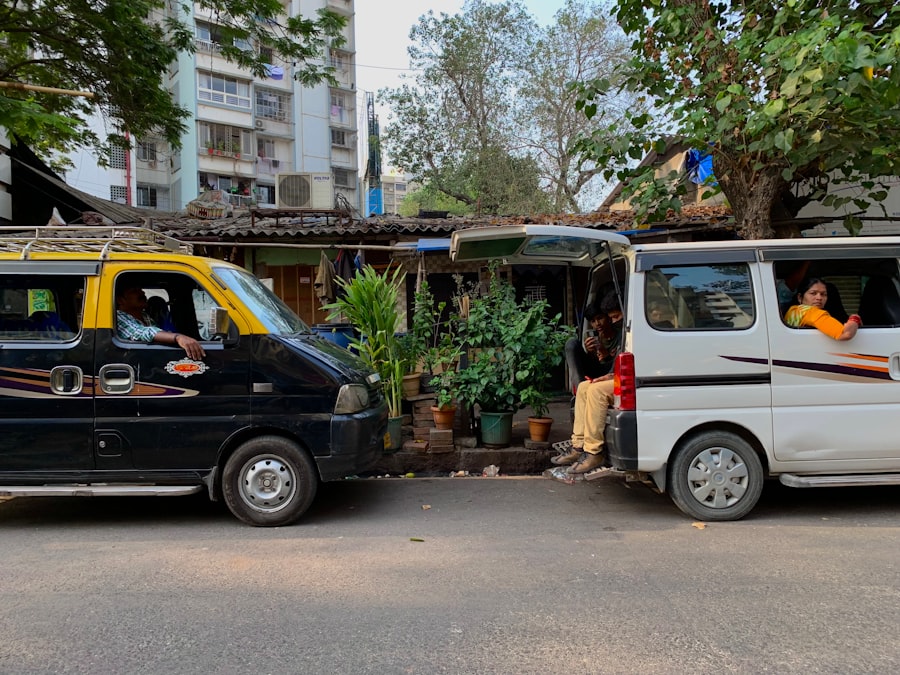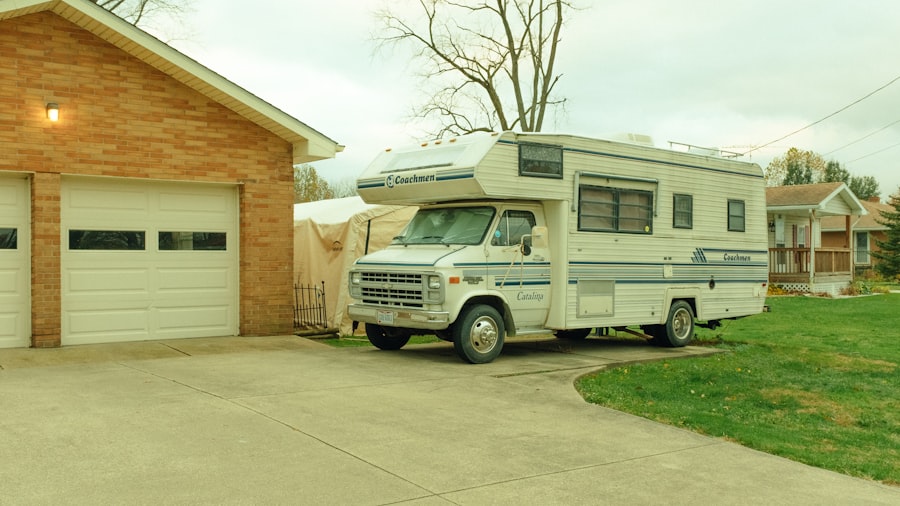In recent years, mobile home communities have experienced a significant resurgence, driven by a combination of economic factors, demographic shifts, and changing lifestyle preferences. Once viewed as a last resort for affordable housing, these communities are now being recognized for their unique advantages and the sense of community they foster. The affordability crisis in many urban areas has pushed individuals and families to seek alternative housing solutions, and mobile homes offer a viable option.
With rising property prices and stagnant wages, many people are turning to mobile home living as a practical solution that allows them to maintain a comfortable lifestyle without the burden of exorbitant mortgage payments. Moreover, the evolution of mobile home design and construction has played a crucial role in this rise. Modern mobile homes are no longer the flimsy structures of the past; they are often built with high-quality materials and innovative designs that rival traditional homes.
Many manufacturers now offer customizable options, allowing residents to choose layouts, finishes, and features that suit their personal tastes. This shift in perception has attracted a diverse demographic, including young professionals, retirees, and families seeking a sense of community and belonging. As urban areas become increasingly congested and expensive, mobile home communities are emerging as an appealing alternative that combines affordability with a strong sense of place.
Key Takeaways
- Mobile home communities are growing in popularity as affordable housing options.
- Residents enjoy shared amenities and a strong sense of community.
- These communities often promote sustainable and eco-friendly living practices.
- Social activities and engagement foster close-knit relationships among neighbors.
- Understanding challenges and carefully selecting a community are key for a positive experience.
Benefits of Living in a Mobile Home Community
Living in a mobile home community offers numerous benefits that appeal to a wide range of individuals. One of the most significant advantages is affordability. Compared to traditional housing options, mobile homes typically come with lower purchase prices and reduced property taxes.
This financial accessibility allows residents to allocate their resources toward other essential aspects of life, such as education, healthcare, and leisure activities. For many, this means the difference between living paycheck to paycheck and enjoying a more stable financial situation. In addition to affordability, mobile home communities often provide a unique sense of belonging and camaraderie among residents.
Many communities are designed with social interaction in mind, featuring shared spaces such as clubhouses, parks, and recreational facilities. This fosters an environment where neighbors can connect, share experiences, and support one another. The close-knit nature of these communities can be particularly beneficial for families with children or retirees looking for companionship.
The opportunity to build lasting friendships and engage in community activities enhances the overall quality of life for residents.
Community Amenities and Services

Mobile home communities frequently offer a variety of amenities and services that enhance the living experience for residents. These amenities can range from basic facilities like laundry rooms and mail services to more elaborate offerings such as swimming pools, fitness centers, and organized social events. Many communities prioritize creating spaces where residents can gather and socialize, which contributes to the overall sense of community.
For instance, some mobile home parks feature well-maintained green spaces with walking trails, picnic areas, and playgrounds for children. These outdoor spaces not only promote physical activity but also encourage residents to spend time outdoors and interact with their neighbors. Additionally, many communities provide on-site management services that can assist with maintenance issues or facilitate community events.
This level of support can significantly enhance the living experience by ensuring that residents feel cared for and connected to their surroundings.
Sustainable Living in Mobile Home Communities
| Metric | Description | Typical Value | Impact on Sustainability |
|---|---|---|---|
| Energy Consumption (kWh per home per month) | Average electricity usage per mobile home | 400 – 600 kWh | Lower consumption reduces carbon footprint |
| Water Usage (gallons per home per day) | Average daily water consumption per home | 50 – 70 gallons | Efficient use conserves local water resources |
| Recycling Rate (%) | Percentage of waste recycled by community residents | 30% – 50% | Higher rates reduce landfill waste |
| Renewable Energy Adoption (%) | Homes using solar panels or other renewable sources | 10% – 25% | Reduces reliance on fossil fuels |
| Green Space per Home (sq ft) | Amount of landscaped or natural area per home | 200 – 400 sq ft | Supports biodiversity and improves air quality |
| Community Composting Participation (%) | Residents participating in composting programs | 20% – 40% | Reduces organic waste and enriches soil |
| Use of Energy-Efficient Appliances (%) | Homes equipped with ENERGY STAR or equivalent appliances | 35% – 60% | Decreases overall energy demand |
Sustainability is becoming an increasingly important consideration for many individuals when choosing where to live. Mobile home communities are uniquely positioned to promote sustainable living practices due to their smaller footprint compared to traditional homes. The compact nature of mobile homes often leads to reduced energy consumption and lower utility bills.
Many modern mobile homes are equipped with energy-efficient appliances and insulation that further enhance their sustainability. Furthermore, some mobile home communities are actively implementing eco-friendly initiatives such as community gardens, recycling programs, and renewable energy sources like solar panels. These initiatives not only benefit the environment but also foster a sense of responsibility among residents to engage in sustainable practices.
By living in a mobile home community that prioritizes sustainability, residents can contribute to a healthier planet while enjoying the financial benefits associated with lower energy costs.
Community Engagement and Social Activities
Community engagement is a cornerstone of life in mobile home communities. Many parks organize regular social activities that encourage residents to come together and participate in shared experiences. These activities can range from potluck dinners and holiday celebrations to fitness classes and game nights.
Such events not only provide entertainment but also serve as opportunities for residents to forge connections and build friendships. The importance of social interaction cannot be overstated; it plays a vital role in mental health and overall well-being. In mobile home communities, where residents often share similar life stages or interests, these social activities can create a supportive network that enhances the living experience.
For example, retirees may find companionship through organized outings or hobby groups, while families can bond over children’s activities or community sports leagues. This emphasis on engagement fosters a vibrant atmosphere where residents feel valued and included.
Challenges and Misconceptions

Despite the many benefits associated with mobile home living, there are challenges and misconceptions that persist in public perception. One common misconception is that mobile homes are synonymous with poverty or instability. While it is true that some individuals may choose mobile homes due to financial constraints, many residents are drawn to these communities for their affordability and lifestyle benefits rather than necessity.
The stigma surrounding mobile homes often overlooks the fact that many communities are well-maintained and offer high-quality living conditions. Another challenge faced by mobile home communities is the potential for discrimination or zoning issues. In some areas, local regulations may restrict where mobile homes can be placed or impose additional fees on residents.
This can create barriers for those seeking affordable housing options in desirable locations. Additionally, some communities may struggle with maintenance issues or management challenges that can impact residents’ quality of life. Addressing these challenges requires ongoing advocacy and education to change perceptions about mobile home living.
The Future of Mobile Home Communities
The future of mobile home communities appears promising as societal attitudes continue to shift toward valuing affordability and community-oriented living. As urban areas grapple with housing shortages and rising costs, mobile home communities may become an increasingly attractive option for those seeking stability without sacrificing quality of life. The trend toward remote work has also opened up new possibilities for mobile home living; individuals no longer need to be tethered to expensive urban centers when they can work from anywhere.
Moreover, advancements in technology are likely to play a role in shaping the future of these communities. Smart home technology is becoming more accessible, allowing residents to integrate energy-efficient systems into their mobile homes easily. Additionally, the rise of eco-conscious living will likely drive demand for sustainable practices within mobile home parks, leading to innovations in design and community planning that prioritize environmental stewardship.
Tips for Choosing the Right Mobile Home Community
Selecting the right mobile home community is crucial for ensuring a positive living experience. Prospective residents should begin by researching various communities in their desired area, paying attention to factors such as location, amenities, and overall reputation. Visiting potential communities in person can provide valuable insights into the atmosphere and maintenance standards.
Another important consideration is the community’s rules and regulations. Each mobile home park may have specific guidelines regarding pet ownership, landscaping, or modifications to homes. Understanding these rules upfront can help avoid potential conflicts down the line.
Additionally, engaging with current residents can offer firsthand perspectives on what it’s like to live in the community; their experiences can provide valuable information about management responsiveness and overall satisfaction. Finally, prospective residents should evaluate their own lifestyle needs when choosing a community. For families with children, proximity to schools and recreational facilities may be essential; retirees might prioritize quiet surroundings or social activities tailored to their interests.
By carefully considering these factors, individuals can find a mobile home community that aligns with their values and enhances their quality of life.



